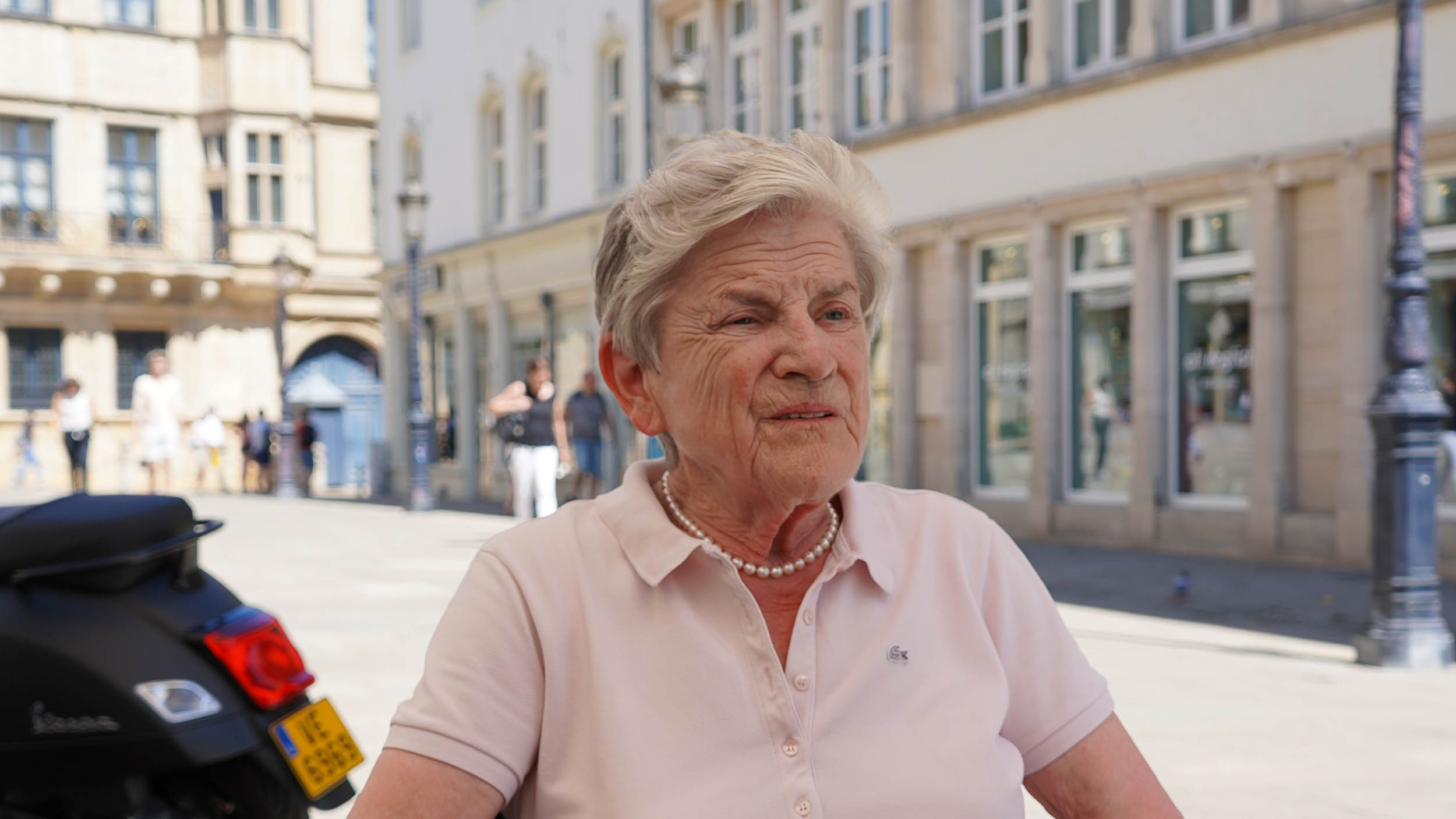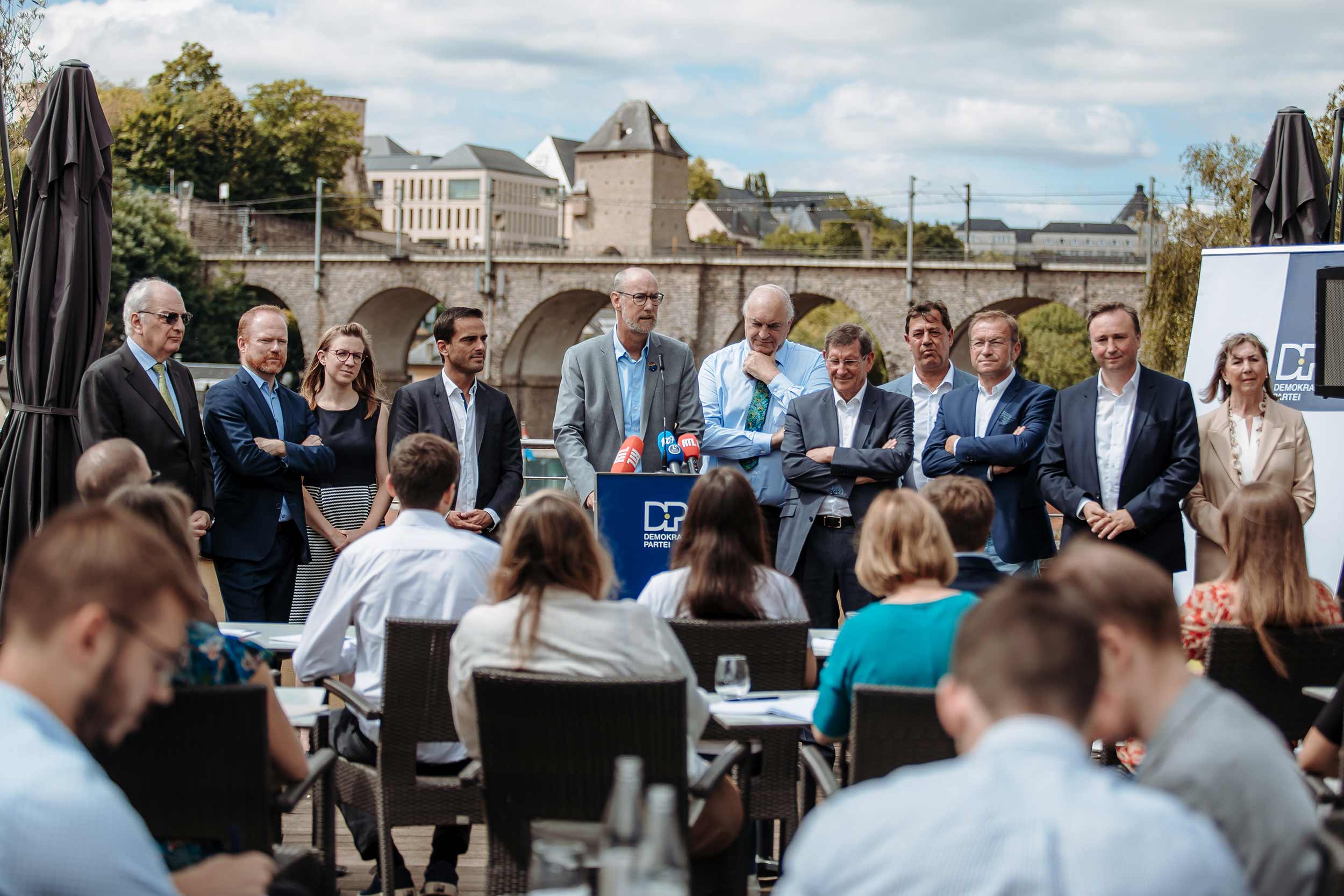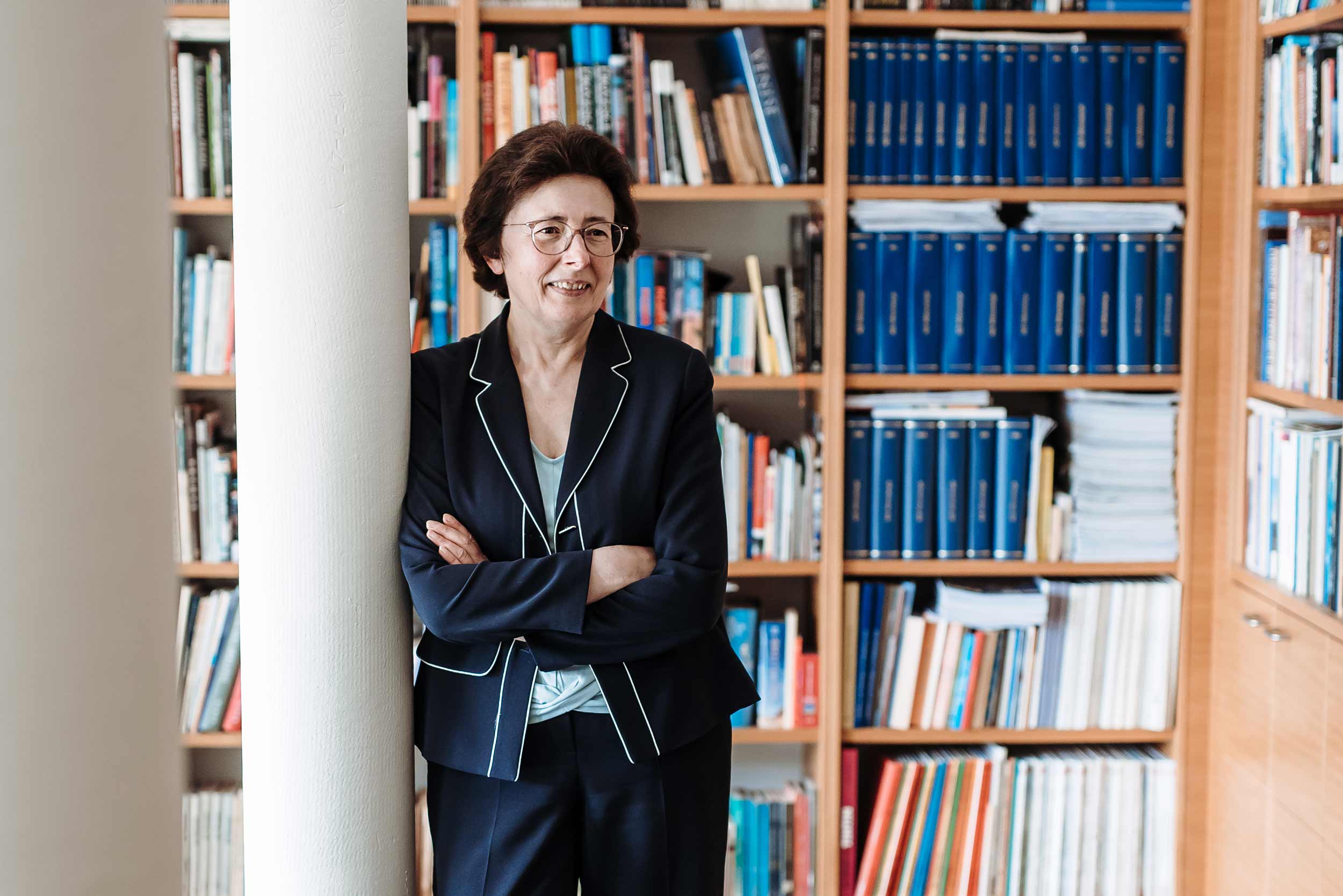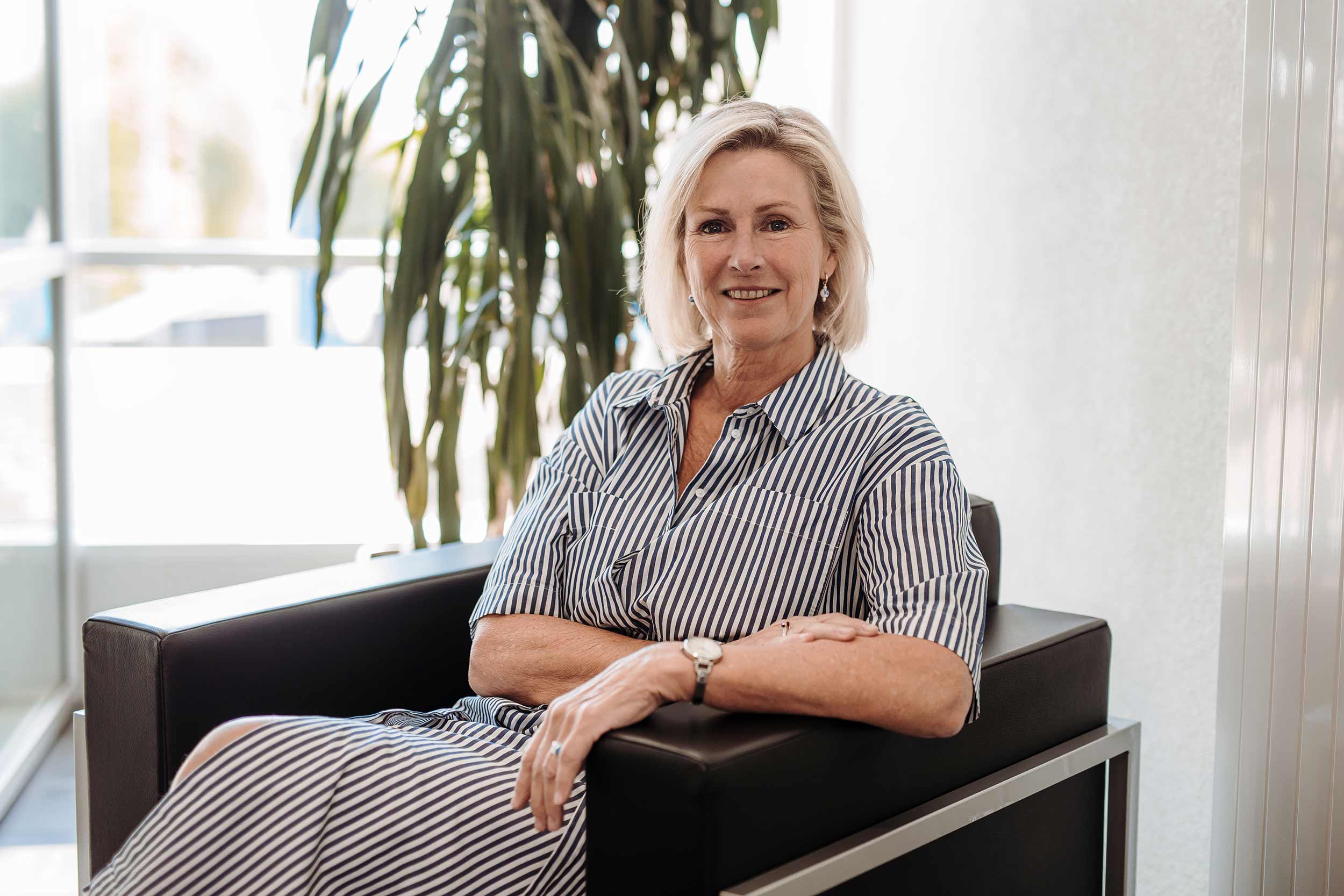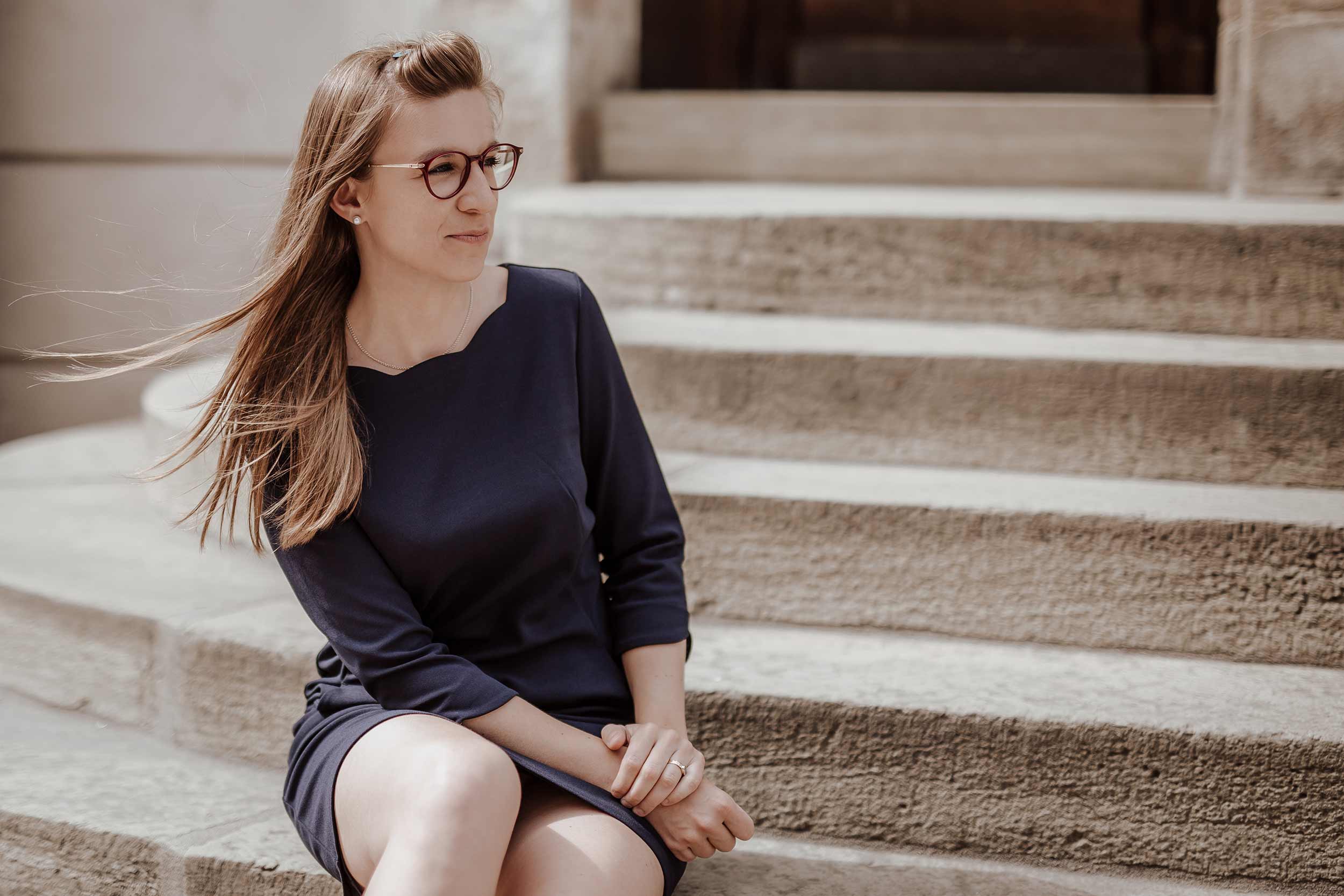„Colette, you can park upfront“.
“No, you know I live in the city center, I’ll come by foot”
At 3pm on the dot Colette arrives for our appointment. It’s 35 degrees outside. A bottle of sparkling water, and we are ready to kick off.
The only child Colette Flesch from Dudelange is evacuated to France with her parents on May 10th in 1940. Her father is the head of the rolling mill in Dudelange, and he had just left the hospital eight days before; he drives for 3 days and 3 nights without stopping. In July, he dies in the Dordogne. Colette is 3 years old.
Colette Flesch and her mother stay in the hexagon until 1945. They live together with the grandparents, her aunt, and her aunt’s children. (“My cousins were like siblings to me”). Then Colette and her mother return to Luxembourg and live in the city. The daughter can only speak French and needs to learn Luxembourgish and German quite quickly. “If I spoke French, my friends would beat me up. That was the best method learn it rapidly”. Her mother made sure her daughter Colette would have a good youth. She goes to work, which wasn’t such an obvious thing at the time.
After her high school years in the ‘Meedecherslycée’, Colette sends a few applications to American Universities. She receives a bursary and continues her studies at the Wellesley College and at the Fletcher School of Law and Diplomacy in Massachusetts.
In 1962, Colette applies for a position in the Ministry of Foreign Affairs: “I was rejected based on a number of excuses and pretexts, but really it was because I was a woman”. It would take another 9 years for the first woman to fill in a Superior Career position in this Ministry under Gaston Thorn in 1971.
In 1964 Colette Flesch is offered a job position in Brussels with the general office of the Council of the European Union. In 1968 Gaston Thorn asks her to be a candidate in the advanced general election. “It was on the 50th anniversary of women’s right to vote, and in October I had participated at Mexico’s Olympic Games as a fencer. He called at 7 o’clock in the evening, I had fifteen guests at the time”. My mother immediately said, “I know what your decision will be”. The following morning at 7.15am, Gaston Thorn calls Colette again, and Colette accepts. The CSV and the Socialist party had also asked her, but the granddaughter of the liberal deputy Dr. Auguste Flesch entered the election as a DP candidate.
Colette Flesch is elected as second substitute candidate and when Gaston Thorn and Eugène Schaus from the centre leave for the government with the CSV, she moves onward and into Chambers. Her colleagues immediately offer her the mandate in the European Parliament, for which there was no direct election, but which required for the candidate to be designated by the national parliament. In Brussels, Colette earned around 36,000 Luxembourg Francs at the time, 3,000 Francs as a deputy – without any social security. So, she decides to work part-time for the Automobile Club.
YOU HAVE TO TAKE IT!
A few months afterwards, life takes yet another turn: Colette Flesch participates in the city’s communal election and comes out as first elected leading with an advance of 2,000 votes – ahead of Camille Polfer and Boy Konen. In their election campaign, the DP had promised that the first elected would become mayor. Colette Flesch was the only woman at ‘Knuedler’, had never been member of a municipal council and she was by far the youngest candidate amongst the men: “I didn’t actually want to become mayor, but Gaston Thorn said You have to take it!” And the future Prime Minister had another tip: “You will need to work a lot in the beginning; you need to know each dossier better than everybody else”.
In 1981, the same Gaston Thorn moves to Brussels as President of the European Commission and is replaced in Government by Colette Flesch. She becomes Vice Prime Minister, Minister for Foreign Affairs (with Commerce and with Cooperation), Minister of Justice and Minister of the Economy (including Small and Medium-Sized Enterprises).
FAINTING INDUSTRY
It was the steel crisis and after her swearing-in ceremony Colette Flesch immediately sits through the Tripartite discussions for 17 hours: “I just thought to myself, well this is kicking off well”. The crisis is considerable, as are the levels of nervousness. After returning from a trip to the United States, the Minister of Economy calls the ARBED a “fainting industry”. A sentence that caused a lot of commotion, and which she could never rid herself of: “I would say it in the exact same way, even today, because unfortunately I was right”, she says. “I probably used too strong a word. At the same time, I did say that of course we need to save the steel industry, but that we also need to start to invest into future industries. This was also a message to the people outside the southern region of the country – whom I had felt to be upset or were being resentful- that all the efforts cannot only be put into the ARBED”.
Sports have helped Colette in such moments: “Sports have taught me how it feels to win or to lose”. An athletic attitude which she would have expected from the DP after the 2013 elections: “I voted for the three party coalition with total conviction, nonetheless one should have at least entered talks with the CSV at the time”.
The former Vice Prime Minister, deputy and city mayor was frequently the woman in first position, but she sticks to her view that women’s quotas don’t solve everything. The most important requirement is for women to be prepared to get involved. And the DP has always been open – at least since 1968 – to give women a chance.
Looking back Colette Flesch has no regrets. “Anyone who has to make decisions will also make mistakes. But I can’t see where, today, I would decide in a fundamentally different way”.
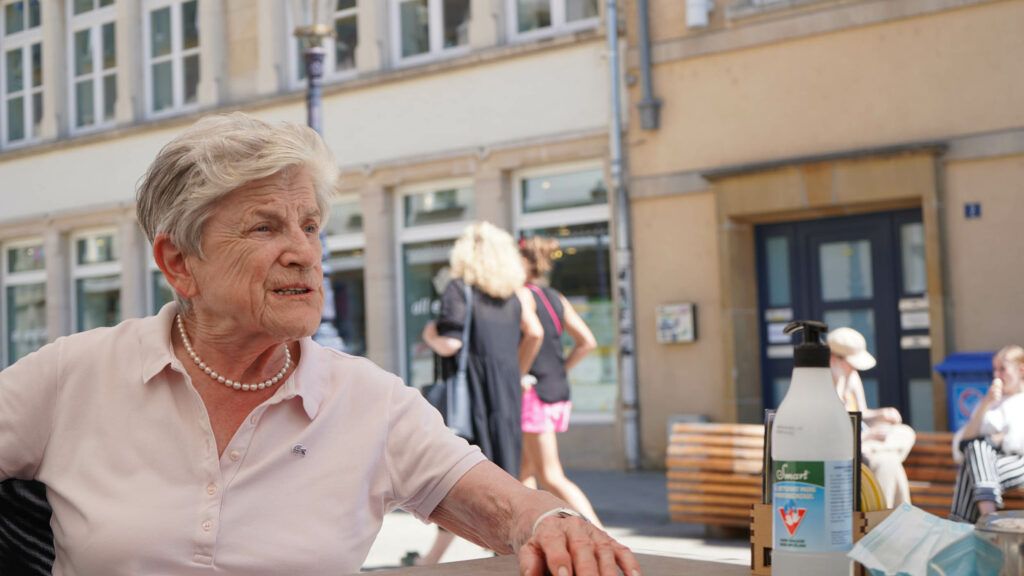
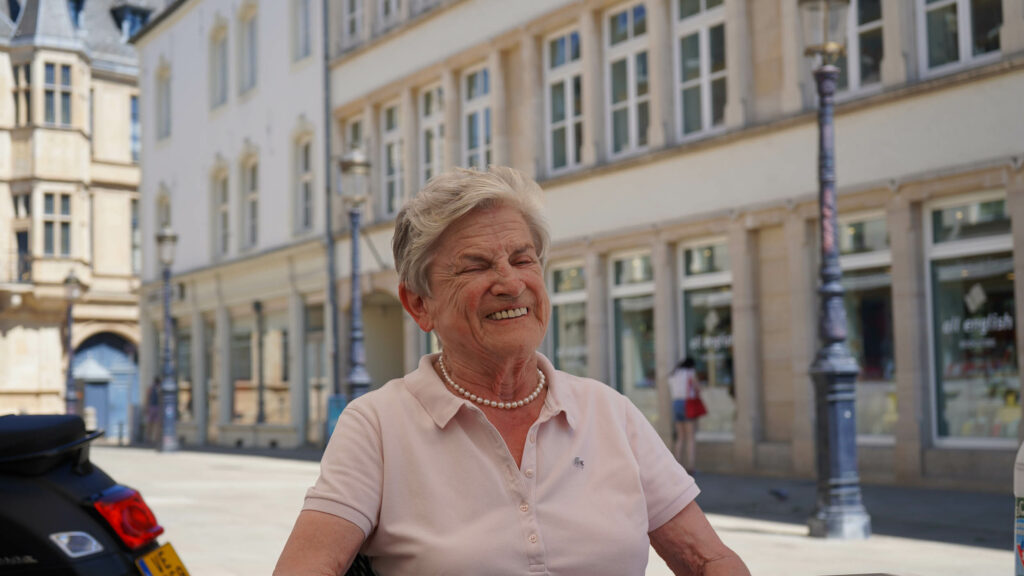
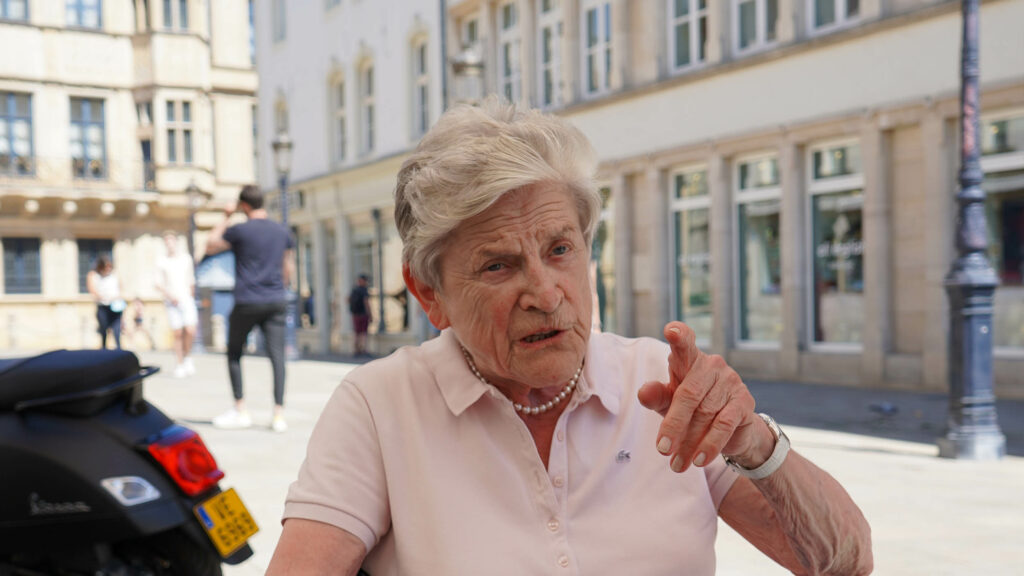
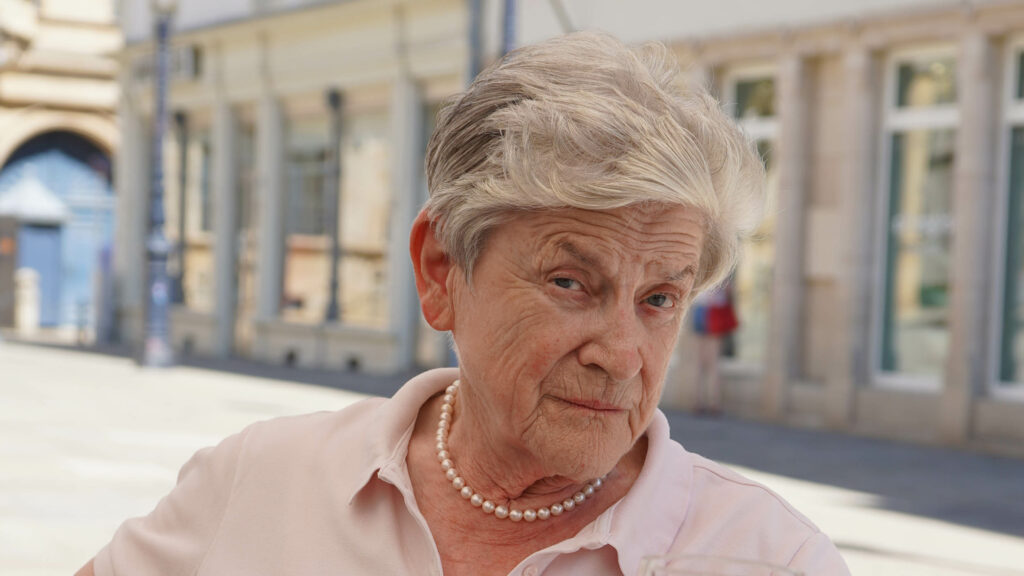
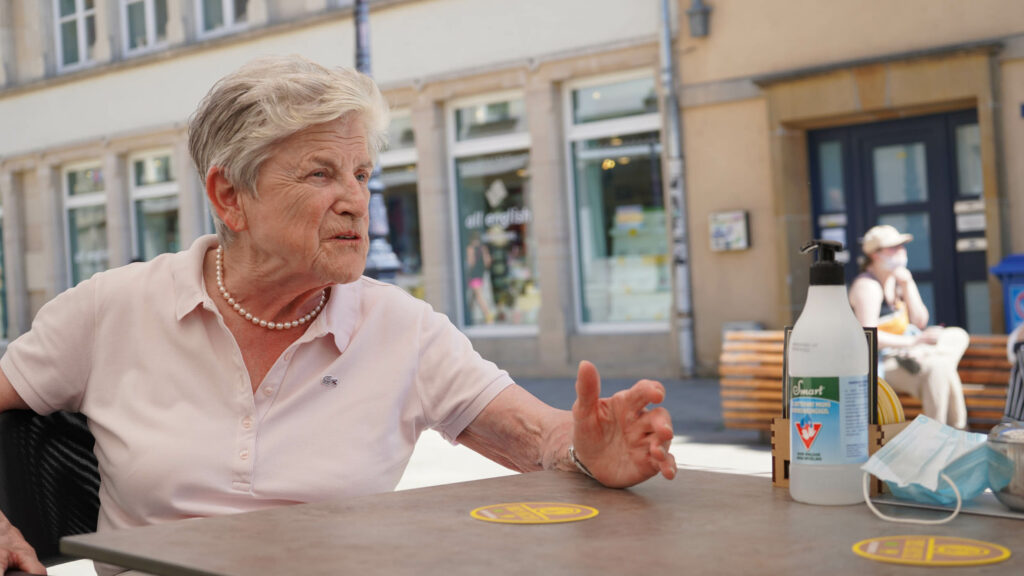
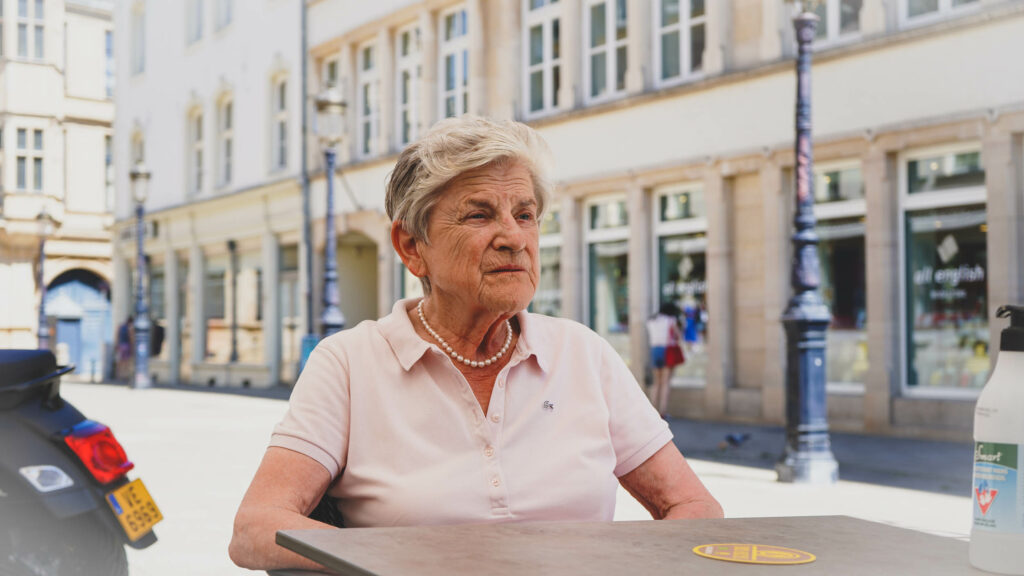
EQUALITY OF TREATMENT FOR WOMEN
On a national level, she’s happy and grateful that she could help work on a number of important reforms: the abolition of the death penalty, the liberalization of abortion, the implementation of palliative care and the decriminalization of euthanasia.
The reform of the married women’s civil rights is especially close to Colette Flesch’s heart: the reform of the matrimonial regime from 1974 and especially the reform of the rights and duties of the spouse from 1972. A body of laws of fundamental importance, and main reason that a big part of the laws for the improvement of women equality in society has even become possible: “A project which, by the way, was submitted by the at the time Minister of Justice Eugène Schaus in 1972. And not, as many believe, by the DP-LSAP administration from 1974 – 1979”.
After 45 minutes Colette finishes her water bottle. She doesn’t need to pack any notes – she didn’t have any. The weather is still very hot and damp.
“Colette, should I give you a lift home?”
“No, thank you, I still have a few things to take care of in town …”.
A great woman. Down-to-earth and with both feet firm on the ground.


